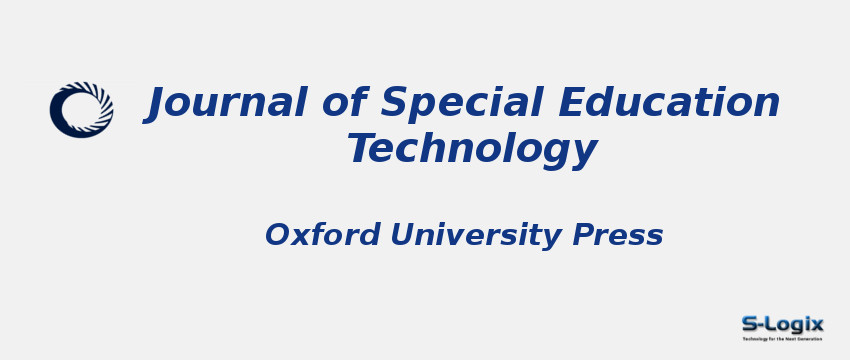Journal Home: Journal Homepage
Editor-in-Chief: Joseph R. Boyle
Print ISSN: 0162-6434
Electronic ISSN: 2381-3121
Abstracting and Indexing: Scopus, SCIE
Imapct Factor 2024: 1.5
Subject Area and Category: Computer Science, Computer Science Applications, Social Sciences, Education
Publication Frequency:
H Index: 43
Q1:
Q2: Computer Science Applications
Q3:
Q4:
Cite Score: 4.1
SNIP: 1.190
Journal Rank(SJR): 0.561
Latest Articles: Latest Articles in Journal of Special Education Technology
Guidelines for Authors: Journal of Special Education Technology Author Guidelines
Paper Submissions: Paper Submissions in Journal of Special Education Technology
Publisher: SAGE Publications Inc.
Country: United States
